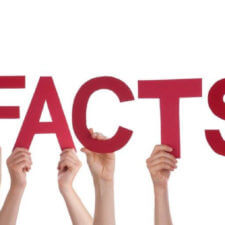How much do we dream – and does everyone dream? Here are the clear-cut answers from science

Let me start with the second question: Yes, we all dream. And the first question: every night, an average of 2 hours per night, equivalent to as much as 6 years of a person’s life! That is quite a lot of dreaming if you ask me.
… So much that I have a hard time relating to those who still believe that dreams serve no real purpose, and that they are just “mental garbage”; i.e. random chemical signals that scurry about in our brain as we sleep. No, they serve a clear purpose (which science btw. today fully support). Another issue is whether we can remember the dreams. The dream sleep (also known as REM sleep /”rapid eye movement” sleep), was discovered in a sleep laboratory in the late 50s and since then, research in dreams has been growing tremendously. Research in dreams is bigger today than ever before.
Still – science have a hard time agreeing on the answer to the question; what is the function of dreams? Some researchers believe that the function of dreams is to help us to remember better – that when we dream, the impressions we have received during the day is processed and stored in our memory.
However, it is shown that especially “non-REM sleep”, as opposed to REM-sleep, plays a key role in the acquisition of new knowledge. Others believe that the function of dreams is to clean up the many inputs we get while awake, so that we do not implode because of information overload. Freud and Jung – both originally doctors – believed that our dreams contain much information about what is happening within us, and especially about our mental well-being and development.
Others believe that the function of dreams & dreaming mainly is to ensure a mental balance within us. I.e. just as the body is able to regulate and to a great extent heal itself, our mind does the same thing, and in this part our dreams play a central role.
I believe in the last mentioned theory – that the function of dreams primarily is to ensure a mental balance within us. I especially believe that Jung was right in his belief that our dreams tell us infinitely much about our mental development, for about our successful or less successful movement towards becoming more adult, i.e. really taking responsibility for our own life and actions.
Therefore, dreams also point to places in our mental development, where we have come to a halt. And because of this, it makes great sense to try to understand the content of our dreams – to excel at dream interpretation, and thus become much more aware of what is truly going on inside us, and around us (our interaction with the world) for that matter.
What do you believe to be the function of your dreams?




Self-assessment. You weave a story (you are the author of your dreams) that prompts your examination of the story when awake. You ask yourself why you wove that dream story and what did it mean? From there you try to figure out what ongoing or past events or similar series of events in your life are symbolically represented in that dream story. If you do a good job, perhaps you will realize that you must discard those events as no longer having material influence on your present life.
(Full disclosure: I am retired from a professional life that was stressful; however, I do not recall having “I’m running late” or “I can’t find my destination” dreams while employed!)
Hi Lawrence,
And thank you for your comment, Apologies for my late reply, but I receive many comments every day, and I simply cannot keep up with them. That is also why I have decided to no longer do interpretations for free. Instead I offer the following options: http://www.michaelrolsen.com/dreamcoaching. Best regards – Michael